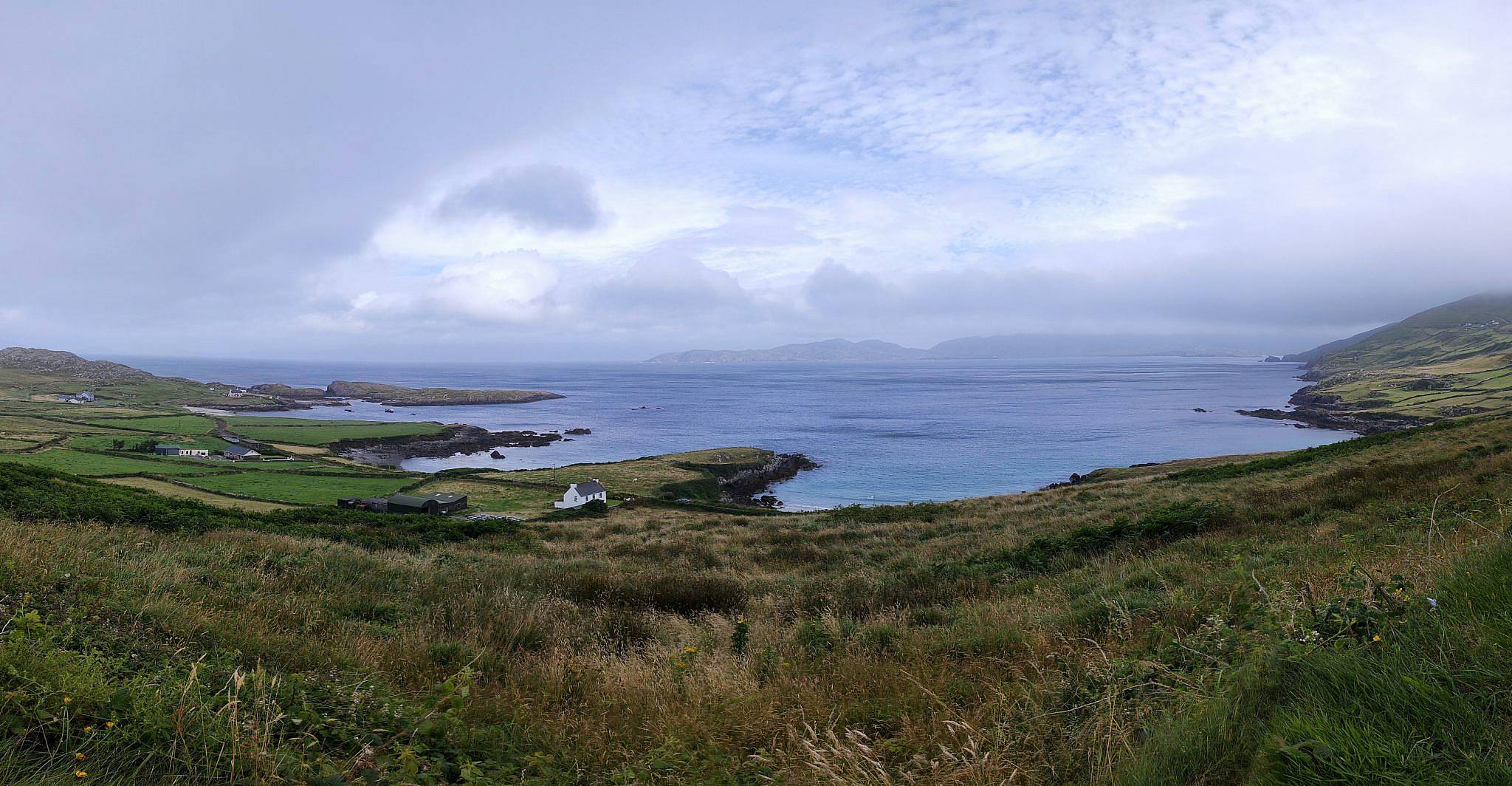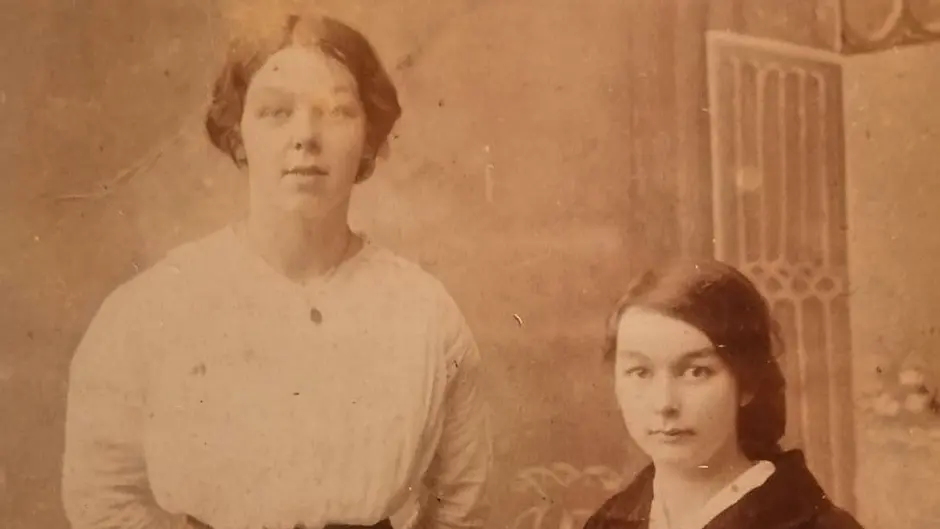Theatre director, writer, and actor Karen Minihan is launching her second book – and a new live performance – telling the stories of women from West Cork who played a heroic but oft-forgotten role in the War of Independence, writes MARTIN CLAFFEY
IT was a chance conversation with a friend that sparked a curiosity in theatre director Karen Minihan from West Cork to start the Extraordinary Women project. Karen’s friend discussed the death of her great grandfather killed in Cork city during the War of Independence.
‘It struck me the impact it had on their family,’ said Karen, who lives in Schull. It got her thinking. And then acting. She put an advert in The Southern Star and a call-out for stories.
Local historians came back, and she began to follow up the stories, visiting families and researching locally and with resources like the Bureau of Military History.
‘These women have incredible stories. The role these women played in the War of Independence is largely unrecognised.
‘What they did was extraordinary but they are ordinary in so many ways. They could be working, catering, or cleaning by day and then sitting by fire that evening drying gelignite.’
Following on from the first book in 2022, More Extraordinary, Ordinary Women: Untold Stories from the Founding of the State was launched at Working Artist Studios, Ballydehob, on St Bridget’s Day, Thursday February 1st, at 5pm, by Finola Finlay of Roaringwater Journal.
It features 13 more stories of West Cork women – from Beara to Kilbrittain – showing their role in shaping Ireland’s future. Through the bravery, talents and determination of the women, the stories reveal how they supported the local Volunteers and made a huge contribution. Yet their lives and health were deeply affected afterwards.
‘The stories in this book have been told quietly, or not at all, the narratives have been ignored and uncelebrated, and at least half of the women featured emigrated in the early 1920s. Where did their knowledge and influence go?’ asks Karen.
All of the tales and women in Karen’s book are extraordinary.
Women like Kathleen O’Connell, who lived on the main street in Ballydehob. Prominent in Cumann na mBan, Kathleen was actively involved with the IRA, carrying dispatches and collecting funds. The book recalls her daringly carrying guns and ammunitions out of a house following a raid. Risking certain execution, she smuggled the guns out underneath cabbage and bread in her hand basket.
‘When stopped by a sentry, she convinced him she was carrying provisions for her children,’ explains Karen.
The British forces later sent 17 lorries to raid her home in Ballydehob!
Kathleen’s O/C was Lizzy Ross Murphy, who also features in the book. Born near Bantry, she later lived at the Cross House pub in Kilcoe, which also served as a headquarters for the local IRA, and was involved in daring exploits throughout the War of Independence, while she was also prominent in the Civil War on the Anti-Treaty side.
And the wars came at huge personal cost, including the death of her brother Gibbs Ross in Bantry in 1922.
In 1927, Lizzie left the Cross House when she married Dan Murphy and moved to his family business in the West Cork Hotel in Skibbereen. Lizzie died in May 1976.
Another extraordinary woman was Matilda Mulvey nee Dudley. She, too, was prominent in Cumann na mBan. The Beara woman’s family were local merchants and ran the post office and shop at Garnish pier.
 Matila Dudley and her sister Mary Anne.
Matila Dudley and her sister Mary Anne.
Because of their location, they had a contract to supply provisions, including coal, to the RIC in Allihies. She would row a heavy yawl boat more than 5kms from Garnish Pier to Allihies providing the provisions.
Matilda’s actions would have been publicly frowned upon for helping the Crown forces, privately she was believed to be passing on information from the RIC barracks, which was used in an attack on Allihies RIC station.
 The vast stretch from Garnish Pier to Allihies, which Matilda Dudley would row before making deliveries – and secretly collect information – at Allihies RIC station.
The vast stretch from Garnish Pier to Allihies, which Matilda Dudley would row before making deliveries – and secretly collect information – at Allihies RIC station.
Matilda left Ireland in 1922 for the US, perhaps disillusioned with the fractious nature of The Treaty. She died there in 1976 but is still remembered by relatives. Karen points out that the War of Independence touched all communities, all classes.
‘I’m interested in trying to give more than the perception was that the Catholics were nationalists and the Protestants were loyalists to the crown. That’s not what the reality was. RIC officers and their families were ordinary people.’
In Kilbrittain, she tells the tale of Dr Dorothy Stepford Price, a Protestant doctor from Dublin who had become active in the volunteer movement.
‘Kilbrittain was a hotbed of Republican activity – the first training camp of the Flying Column was in Kilbrittain,’ says Karen. ‘Dr Price came from a loyalist family but she became involved in the Republican movement, taking unbelievable risks.’
The Essex Regiment under the hated Arthur Percival was billeted nearby, and would have been close to Dr Price and her work in the Kilbrittain dispensary. But in the shadows she was busy as a medical officer for the local IRA, putting her own life in danger.
Other stories left a mark through the years, like the ‘curse’ that was placed on Clonakilty’s main street by Margaret Keeney, wife of Det Inspector Michael Keeney who was murdered as he left to transfer to Cork.
‘We didn’t talk about War of Independence or Civil War when I was growing up in Clonakilty. I wasn’t aware of Margaret’s story growing up but I remember the curse being a big thing in our family.’
The interesting thing about the stories of the War of Independence, and the Civil War, was that it wasn’t spoken about by the generation that followed.
‘Often, children and the next generation would be asked to leave the room if it was being spoken about,’ explains Karen.
‘These things weren’t talked about openly. For many people it was still very raw, particularly the Civil War, and it was their way of coping.
‘I think part of what happened, and the horror and loss, led to a legacy of secrecy and of sensitivity. And there’s a whole post-traumatic stress element which we don’t really know about, how it affected these people in years afterwards.’
 Karen Minihan’s book traces the stories and contributions of West Cork women to Ireland’s War of Independence.
Karen Minihan’s book traces the stories and contributions of West Cork women to Ireland’s War of Independence.
Karen has a live show inspired by the books, while a short documentary based on the first book was screened at festivals in 2023. Wombat Media – Ciara Buckley from Castletownshend, and her partner Dave Slowo – are now making a new film based on four of the stories from the new book.
Karen, who lives in Schull, hopes that through her books, not only is she shining a light on extraordinary women, but hopes that it is part of the process of acceptance and reconciliation. In the War of Independence, in the Civil War, right and wrong gets mixed up.
‘Truth gets lost,’ she says. ‘Certain ideas hold sway. We can start to “other” people. It’s never that black and white.’
A century later Karen tries to see the relevance, and the lessons from a century ago.
‘It’s not just telling these women’s stories. I try to look at things through a 2024 perspective, and what we are doing about this now, in order to create a better future and reconciliation.’










